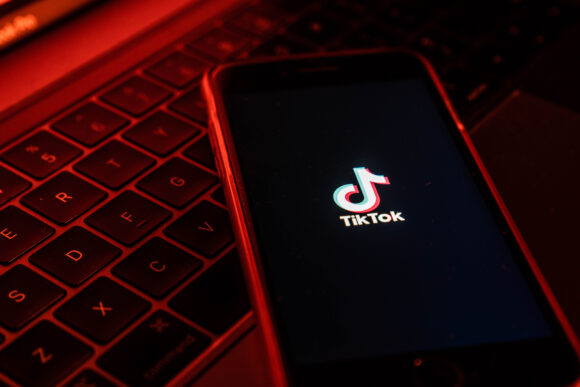TikTok has long known that its popular video livestreams encourage sexual content, including streams exploiting and “grooming” minors, according to a lawsuit from the state of Utah that was unredacted on Friday.
TikTok also discovered through an internal investigation that the feature, called TikTok Live, facilitated money laundering and allowed users to sell drugs and fund terrorism, the lawsuit alleges.
Bipartisan attorneys general from more than a dozen states sued TikTok last fall, accusing the app of financially and sexually exploiting minors. Utah also sued TikTok on similar grounds in June. Several of those lawsuits — including those from Utah, Vermont, New Hampshire, Kentucky and the District of Columbia — focused on TikTok Live. The suits cited investigative reporting from Forbes that found adult men regularly use the livestreams to coax teen girls to perform racy, sometimes sexual acts in exchange for digital “gifts” that can be redeemed for money.
The newly unredacted lawsuit also details Project Jupiter, a separate internal investigation into the prevalence of money laundering on the platform. That investigation, which has not been previously reported, found that TikTok Live and its gifting feature were being used to illegally launder money used to sell drugs and commit other crimes. That investigation was launched in 2021. TikTok employees have also discussed ways Live has been used to fund terrorist organizations overseas, including the Islamic State, the lawsuit claims.
Utah and other states built their complaints on a trove of internal TikTok documents obtained via subpoena, but many of the specific allegations were redacted in public filings. Despite TikTok’s efforts to keep the records confidential, a Utah district court judge ruled on Dec. 19 to unseal much of the material in the lawsuit.
A TikTok spokesperson did not immediately respond to a request for comment. In a prior statement about the Utah lawsuit, a TikTok spokesperson said the company “has industry-leading policies and measures to help protect the safety and well-being of teens” and that it removes livestreams found in violation of its policies.
The unredacted complaint comes just over two weeks before TikTok could be banned in the US under a new national security law signed in April by President Joe Biden. The measure aims to address longstanding fears that the TikTok app, owned by China-based parent ByteDance Ltd., could be used to gather sensitive intelligence on Americans, or manipulate the content people see related to key political and social issues. TikTok’s popularity with minors, and the well-documented dangers it can pose to them, has only exacerbated those concerns.
Utah’s lawsuit quotes chat logs from TikTok employees, slides from internal presentations and other communications showing the company conducted a sweeping internal investigation into TikTok Live following the Forbes reporting. The investigation, codenamed Project Meramec, confirmed the app facilitated potentially illegal financial transactions and problematic livestreams in which underage users would perform sexualized acts in exchange for virtual gifts from viewers.
In many cases, those users were too young to be allowed on the livestreams. At the time, TikTok’s policies forbade people under 16 from streaming live, and those under 18 from sending or receiving virtual gifts. Still, the investigation found that 112,000 underage users hosted livestreams in a single month in 2022, the lawsuit alleges.
TikTok also found that its algorithm boosted these types of sexualized videos so that they were more widely distributed. TikTok takes a financial cut when virtual gifts are shared on the app.
Margaret Busse, executive director of Utah’s Department of Commerce, who sits on the cabinet of Utah Governor Spencer Cox, said that while the risks social media can pose to minors are well known, the revelations about TikTok Live – and the ways the dangers are multiplied when money is changing hands – add a new layer of complexity to the problem.
“When they understood what was happening, they also understood the amount of money it was making, and they did not want to do anything about it,” she said in an interview with Bloomberg. “That’s just what is so incredibly damning in my mind.”
Was this article valuable?
Here are more articles you may enjoy.


 FM Using AI to Elevate Claims to Deliver More Than Just Cost Savings
FM Using AI to Elevate Claims to Deliver More Than Just Cost Savings  These Five Technologies Increase The Risk of Cyber Claims
These Five Technologies Increase The Risk of Cyber Claims  Elon Musk Alone Can’t Explain Tesla’s Owner Exodus
Elon Musk Alone Can’t Explain Tesla’s Owner Exodus  Hackers Hit Sensitive Targets in 37 Nations in Spying Plot
Hackers Hit Sensitive Targets in 37 Nations in Spying Plot 